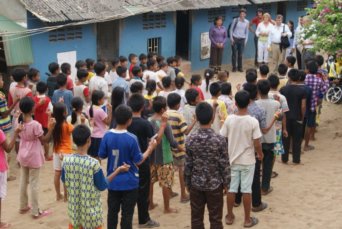- About
- Topics
- Picks
- Audio
- Story
- In-Depth
- Opinion
- News
- Donate
- Signup for our newsletterOur Editors' Best Picks.Send
Read, Debate: Engage.
Despite spirited campaigns to improve millions of lives through global aid and donor funding, various countries have sunk further into a poverty abyss, with some worse off than they were before the interventions. Attributed to a top bottom and patronising approach by the international community to host countries, this form of aid has proven counterproductive while fanning an explosion of fragile states. Data shows that half of the world’s poor will live in these fragile states by 2030, the same year the world has committed to eradicate poverty in all its forms and make a positive change for the world's people and our planet.
While illegitimate governments especially in developing countries continue to mushroom with a concomitant thinning of democratic space. Unable to provide the citizenry with basic public services, such as jobs, security, education and healthcare, such political scenes have triggered a series of reactionary events that are now having an unprecedented impact on global peace and stability. Mass migration is a direct result of disenfranchised populations looking for better days at any cost, while terrorism has provided an alternative source of solace and income – especially to the youth. As a means of aid, the international community’s approach to these problems has traditionally been guided by coercion and partisanship, which has further fanned rebellion from governments of fragile states.
Indeed this stand has been galvanised by a recently released report dubbed ‘Escaping the fragility trap’, that has made bold observations and recommendations on rescuing states that are teetering on the precipice of collapse, while calling out the community of nations to learn from previous mistakes in tackling unstable states. “Indeed, some of the things developed countries, non-governmental organisations, and donors have done have arguably made matters worse,” the report reads.
In these tough times, a change of tact will go a long way in stemming the threat of a poverty ridden future for millions. Actors that play a crucial role in holding these countries together, including the United Nations, donor groups and peacekeeping forces must be guided by less idealism and more realism. Local problems require homegrown solutions, guided by the realisation that transforming fragile states is a journey and not an event. Those leading the positive change need to be the people who are affected by its consequences most.
